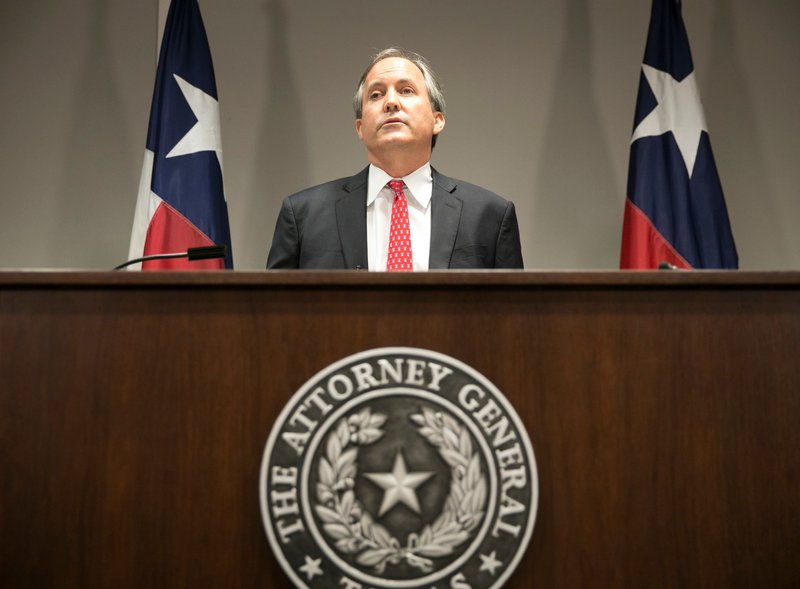Alabama is 2018’s third worst state for working moms

Working mothers in the Yellowhammer State deserve the hard-earned break and gifts headed to them this Mother’s Day. But unfortunately, according to a new study from personal finance site WalletHub, 2018’s Best & Worst States for Working Moms, the state ranks as the third worst state in the nation for working moms. That’s up from being the worst state in the nation in 2017. By using data from the U.S. Census Bureau, the Bureau of Labor Statistics, the and the Equal Employment Opportunity Commission, the study found several key methods to determine the scores of each state, including: child care, professional opportunities and work-life balance. The state had very low scores for all three methods, ranking 42nd in child care, 50th in professional opportunities and 43rd in Work-life balance. Alabama also ranked in the bottom five for several categories, worst day care systems, highest gender pay gap, and lowest female executive to male executive ratio. The state ranks 31st in average length of a woman’s workweek, 36.1 hours, 29th for women’s average commute time, 22.8 minutes, and 40th in terms of friendly laws for parental leave. Mobile-Democrat State Rep. Adline Clarke introduced a bill in the 2018 legislative session to close the wage gap in Alabama, but it failed to pass. When asked what else local governments could do to help support working mothers, Elizabeth F. Chapman, Associate Professor of Management at Mercer University said “ensure that there are adequate, quality, affordable child care facilities and excellent public schools. Support can also include efforts to close the wage gap between women and men, while providing development and educational opportunities for women to enter into high-paying positions.” “Governments should have a fair representation of women and men in political positions,” Chapman continued, and with 2018 being called the “Year of the Woman” in Alabama politics, we might actually see some progress for women in the state.
Republican attorneys general support citizenship question on census

A Trump administration plan to ask people if they are U.S. citizens during the 2020 census has prompted a legal uproar from Democratic state attorneys general, who argue it could drive down participation and lead to an inaccurate count. Yet not a single Republican attorney general has sued — not even from states with large immigrant populations that stand to lose if a census undercount of immigrants affects the allotment of U.S. House seats and federal funding for states. In fact, many GOP attorneys general had urged Trump’s census team to add a citizenship question. “We always are better off having a more accurate count of citizens versus non-citizens. I see no downside in this,” said Texas Attorney General Ken Paxton, vice chairman of the Republican Attorneys General Association. The diverging views of top Republican and Democratic state attorneys highlight how even the most basic data collection decisions can quickly split along partisan lines amid the intense debate about immigration policies. Concerns among immigrants have risen as President Donald Trump’s administration has cracked down on so-called sanctuary jurisdictions, increased arrests by federal immigration officers, called the National Guard to the border with Mexico and sought to limit travel to the U.S. from certain predominantly Muslim countries. U.S. Commerce Secretary Wilbur Ross announced last month that the 2020 census distributed to every U.S. household will include a citizenship question for the first time since 1950. He said the question was needed in part to help the government enforce the Voting Rights Act, the 1965 law that was intended to protect the political representation of minority groups. He said it will provide a more accurate tally of voting-eligible residents than is currently available from a smaller sampling survey that includes the citizenship question. In a letter explaining his decision, Ross said the U.S. Census Bureau estimated that as many as 630,000 additional households might not respond if a citizenship question is included. Yet he acknowledged the administration did not know what the actual consequences might be because it hasn’t tested the change. The nation’s only dress rehearsal for the 2020 census, currently taking place in Providence, Rhode Island, does not include the citizenship question on the survey forwarded to residents. Nevertheless, Ross determined the benefits of including the question outweigh any concerns. California Attorney General Xavier Becerra, a Democrat, filed a federal lawsuit immediately after Ross announced the question would be added. The nation’s most populous state also has the highest number of foreign-born residents, most of whom are naturalized U.S. citizens or hold some other legal status. Last week, New York Attorney General Eric Schneiderman led a coalition of 17 Democratic attorneys general, the District of Columbia, six cities and the bipartisan U.S. Conference of Mayors in filing a second federal lawsuit. They contend the citizenship question will deter participation and illegally inhibit the Constitution’s requirement for an “actual enumeration” of residents. A third lawsuit was filed this past week by a group of seven Maryland and Arizona residents who say adding the question could lead to an undercount that could diminish federal funding and congressional representation for their states. The Constitution requires representation in the U.S. House to be based on a count of the total residents in each state, not just citizens. The census, undertaken every 10 years, also is used to determine how much money to distribute to local communities through various federal programs. “If we don’t count all the people who live in our city — all the residents we have — it could mean that our community doesn’t get our fair share of moneys or aid,” said Steve Adler, mayor of Austin, Texas, and a Democrat who is on the board of the U.S. Conference of Mayors. “It could also mean that we don’t get the representation in government at all levels. The impacts could be huge.” The George Washington University Institute of Public Policy recently analyzed how a hypothetical 1 percent undercount beyond the figures reported in the 2010 census would have affected 2015 federal funding for Medicaid and several other social programs in each state, assuming the undercount occurred only in that state. The largest financial hits would have been to the Republican-led states of Texas, Florida and Ohio, the swing state of Pennsylvania and the traditionally Democratic state of Illinois, the report found. Democratic-led California and New York would not have been affected because their Medicaid reimbursement rates already are at minimum levels. Estimates of those living in the U.S. illegally range from 11 million to a little over 12 million people. Census data is not shared with immigration enforcement authorities. Yet immigrant advocates believe a citizenship question could discourage even some who are lawfully present from responding, partly because of fears the government could track down relatives living in the U.S. illegally. The U.S. has about 44 million residents who were not citizens at birth, comprising 13.5 percent of the total population, according to the most recent Census Bureau information. More than half of all immigrants live in California, Texas, New York or Florida. Last week, a Democratic state senator in Florida formally asked the state’s attorney general, Republican Pam Bondi, to join the New York lawsuit challenging the citizenship question. That’s unlikely because Bondi was among 11 Republican state attorneys general and two governors who signed a March 13 letter urging the Commerce Department to include a citizenship question. Minority Democrats in the Arizona Legislature also urged GOP Attorney General Mark Brnovich to join the lawsuit. But his spokesman said that won’t happen, just as he refused to sign onto the Republican letter urging the question be included. “We have concerns this issue has been overly politicized,” Brnovich spokesman Ryan Anderson said in a statement. The letter from Republican state officials said a census citizenship question could help minority communities by allowing those drawing legislative districts to ensure there are enough voting-eligible citizens in a particular district for minorities to be able to elect a candidate of their choice under
Alabama ranks 2016’s 10th worst state in elder-abuse protections

America has become an increasingly aging nation. The U.S. Census Bureau expects the population aged 65 and older to nearly double from 43.1 million in 2012 to 83.7 million in 2050, much to the credit of aging Baby Boomers who began turning 65 in 2011. That’s bad news for those aging in Alabama — the state is ranked one of the worst in elder-abuse protections in the country, according to a new online report. A new Wallethub study shows out of the 50 states and the District of Columbia, Alabama ranked 10th worst in protections against elder abuse. Alabama ranked poorly when it comes to eldercare organizations and services per resident aged 65+, total long-term care ombudsman-program funding per resident aged 65+, number of certified volunteer ombudsmen per resident aged 65+, among other measures used to gauge the state’s level elder-abuse protection. Here’s how Alabama stands on some key metrics studied by WalletHub: Elder-ebuse protections in Alabama (1=best; 25=avg.) 20th: Elder-abuse, gross-neglect and exploitation complaints per resident aged 65+ 27th: Total expenditures on elder-abuse prevention per resident aged 65+ 35th: Total long-term care ombudsman-program funding per resident aged 65+ 35th: Number of eldercare organizations and services per resident aged 65+ 49th: Number of certified volunteer ombudsmen per resident aged 65+ 20th: Nursing-homes quality Here’s how Alabama compares to the rest of the country: Source: WalletHub
Census numbers reveal decline in uninsured Alabamians

Health insurance statistics released Tuesday by the U.S. Census Bureau indicate that the rate of uninsured Americans dropped in 47 states last year, including Alabama. The data reveals only one in 10 Alabamians lacked health insurance coverage in 2015, an improvement from the state’s 13.6 percent uninsured rate in 2013, the last year before the Affordable Care Act took full effect. Tuesday’s numbers come in the midst of a volatile election season, where citizens across the country continue to weigh the pros and cons of the Affordable Care Act, often called Obamacare, as they decide who they’re voting for in November. For some, Tuesday’s numbers serve as a reminder for the need for an expanded Medicaid program in the state. “[The] good news about health coverage in Alabama would be even better if the state had expanded Medicaid,” said Alabama Arise State Coordinator Kimble Forrister. “More Alabamians have coverage today than in 2013, and the Affordable Care Act deserves much of the credit for those gains. Nearly 200,000 Alabamians have signed up for health insurance through the ACA marketplace. Many of them have coverage for the first time, and all of them now have the peace of mind that comes with knowing that a medical emergency won’t lead to financial ruin.” According to Forrister, Medicaid expansion would close the coverage gap for more than 300,000 uninsured across Alabama. “That would mean a more productive workforce, thousands of new jobs and big state savings on mental health care and other services,” Forrister explained. “We’re being left out. States like Kentucky and West Virginia that have expanded Medicaid have much lower uninsured rates than those that haven’t. They’re also enjoying the job creation and cost savings that come from injecting new federal money into their budgets and economies. It’s time for Alabama to expand Medicaid and reap those same benefits.”
Terri Sewell to visit Cuba to discuss expanding agricultural trade

Rep. Terri Sewell (AL-07) is headed to Cuba. Sewell announced Tuesday evening she will be traveling to Cuba this week with U.S. Department of Agriculture Secretary Tom Vilsack on a congressional delegation to discuss opportunities to expand agricultural trade. “I am excited to join Secretary Vilsack for this historic visit to Cuba,” Sewell said in a news release. “This visit builds on the trade summit I hosted in Montgomery earlier this year with U.S. Trade Representative Michael Froman. Given Alabama’s growing trade interests, I look forward to meeting with members of Cuba’s Ministry of Agriculture and discussing ways to further expand trade with Cuba.” The schedule includes meetings with Cuban government officials in agriculture, foreign affairs, and food purchasing and visits to port facilities, markets and cooperatives. “This trip will be an opportunity to support the administration’s commitment to normalizing relations and empowering the Cuban people through bilateral agricultural engagement,” Vilsack said. “Food and agricultural goods are the dominant U.S. exports to Cuba and agriculture can serve as a bridge to foster cooperation, understanding and the exchange of ideas. According to the Foreign Trade Division of the U.S. Census Bureau, Alabama exported about $32.8 million in food products to Cuba in 2014. “With renewed U.S. diplomatic relations in Havana, my hope is that Alabama will derive huge economic benefits that have been fostered by existing trade relationships with Cuba,” Sewell said. “Access to foreign markets and fair trade policies that benefit American workers are necessary components that will help Alabama exporters to continue to thrive and spur new job creation. President Obama took historic steps to chart a new course for U.S.-Cuba relations when he restored diplomatic relations between our two countries. This will undoubtedly serve as a catalyst for increased trade and investment opportunities in Cuba for Alabama businesses, especially those in our agriculture sector.” Under the Obama Administration, the United States has sought to improve relations with the Caribbean nation. The trade embargo was softened, Cuba was taken off the “terrorist sponsor” list and earlier this year embassies were established in each nation for the first time since 1961. Rep. Sewell will be joined by Sen.Jeff Merkley of Oregon, Rep. Suzan DelBene of Washington, and Rep. Kurt Schrader of Oregon. The delegation left Washington, D.C., Wednesday and will return Saturday.


